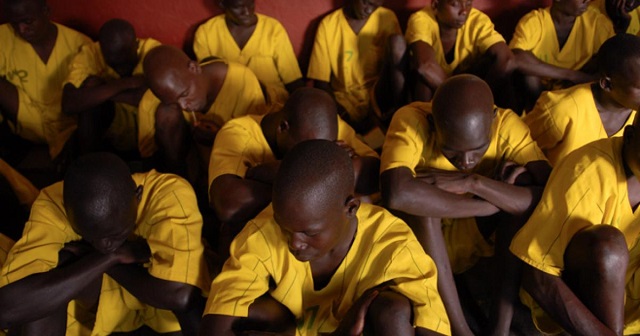
Kampala, Uganda | THE INDEPENDENT | Thirty six Uganda prison personnel are undergoing training on how to rehabilitate and reintegrate extremist prisoners.
The training that is being held at Admans Hotel in Entebbe is facilitated by the United Nations Office on Drugs and Crime-UNODC, with funding from the European Union, the Kingdom of the Netherlands and the UN Office on Counter-Terrorism.
Wilson Francis Magomu, the Commissioner in charge of safety and security operations Uganda Prisons Services, says that violent extremist inmates are those who are on remand or have been convicted of offences that include terrorism, abetting terrorism, deriving pleasure from causing grievous harm such as burning or amputation of corpses among others.
According to Magomu, the eight convicts of the 2010 twin bombings in Kampala are among those who have been classified as violent extremist prisoners.
He explains that the violent inmates mastermind escapes and brawls inside the prisons and can harm themselves and others.
Magomu says that prison warders, rehabilitation and reintegration officers have had a challenge of how to handle such prisoners.
Dr John Byabashaija, the Commissioner-General Uganda Prisons Services, says that the training is timely because it will prepare the personnel on how to handle violent extremist prisoners.
Byabashaija says 189 out of a total of 66,323 inmates are currently in the violent extremist category.
During the training, prisons staff will interface with experts on how to come up with an integrated approach to rehabilitation and reintegration of prisoners including violent extremist inmates and also identify additional needs and challenges for different categories of violent extremist prisoners.
Dr Peter Bennet, a UNODC prison security expert, said prison staff should learn how to interact with violent inmates and learn how they communicate amongst themselves. He added that they should also have mechanisms to report inmates who are radicalizing others for immediate action.
Sharon Nyambe, the head of office at UNODC says the training is part of the joint initiative supporting the management of violent extremist prisoners and the prevention of radicalization to violence in prisons.
Nyambe says that so far, the rehabilitation and reintegration of violent extremist prisoners has been included in the training for instructors at the prisons training school.
She adds that Uganda is among the three countries worldwide that have been selected to implement the rehabilitation and reintegration of violent extremist prisoners due to threats of terror. The other countries are Tunisia and Kazakhstan.
Karin Boven, the Ambassador of the Netherlands to Uganda says the prisons staff should however not discriminate against violent extremist prisoners because they remain human beings who must upon release from detention be able to live meaningful lives.
Similar training will be carried out in six prisons that include Kakika in Mbarara, Jinja, Masaka, Luzira Upper Prison and Kitalya to assess how staff will handle violent extremist inmates.
*****
URN
 The Independent Uganda: You get the Truth we Pay the Price
The Independent Uganda: You get the Truth we Pay the Price



